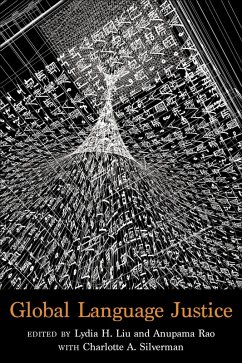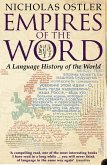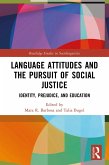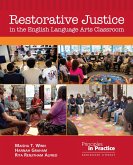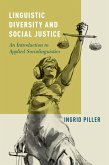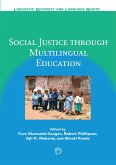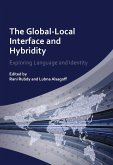More than 40 percent of the world's estimated 7,100+ languages are in danger of disappearing by the end of this century. As with the decline of biodiversity, language loss has been attributed to environmental degradation, developmentalism, and the destruction of Indigenous communities. This book brings together leading experts and younger scholars across the humanities and social sciences to investigate what global language justice looks like in a time of climate crisis. Examining the worldwide loss of linguistic diversity, they develop a new conception of justice to safeguard marginalized languages.
Global Language Justice explores the socioeconomic transformations that both accelerate the decline of minoritized languages and give rise to new possibilities through population movement, unexpected encounters, and technological change. It also critically examines the concepts that are typically deployed to defend linguistic diversity, including human rights, inclusiveness, and equality. Contributors take up topics such as mapping language communities in New York City or how Indigenous innovation challenges notions of linguistic purity. They demonstrate the need to reckon with linguistic diversity in order to achieve a sustainable global economic system and show how the concept of digital vitality can push language justice in new directions. Interspersed with their essays are multilingual works by world-renowned poets and artists that engage with and deepen the book's themes. Integrating ambitious theoretical exploration with concrete solutions, Global Language Justice offers vital new perspectives on the place of linguistic diversity in ongoing ecological crises.
Global Language Justice explores the socioeconomic transformations that both accelerate the decline of minoritized languages and give rise to new possibilities through population movement, unexpected encounters, and technological change. It also critically examines the concepts that are typically deployed to defend linguistic diversity, including human rights, inclusiveness, and equality. Contributors take up topics such as mapping language communities in New York City or how Indigenous innovation challenges notions of linguistic purity. They demonstrate the need to reckon with linguistic diversity in order to achieve a sustainable global economic system and show how the concept of digital vitality can push language justice in new directions. Interspersed with their essays are multilingual works by world-renowned poets and artists that engage with and deepen the book's themes. Integrating ambitious theoretical exploration with concrete solutions, Global Language Justice offers vital new perspectives on the place of linguistic diversity in ongoing ecological crises.
Dieser Download kann aus rechtlichen Gründen nur mit Rechnungsadresse in A, D ausgeliefert werden.

